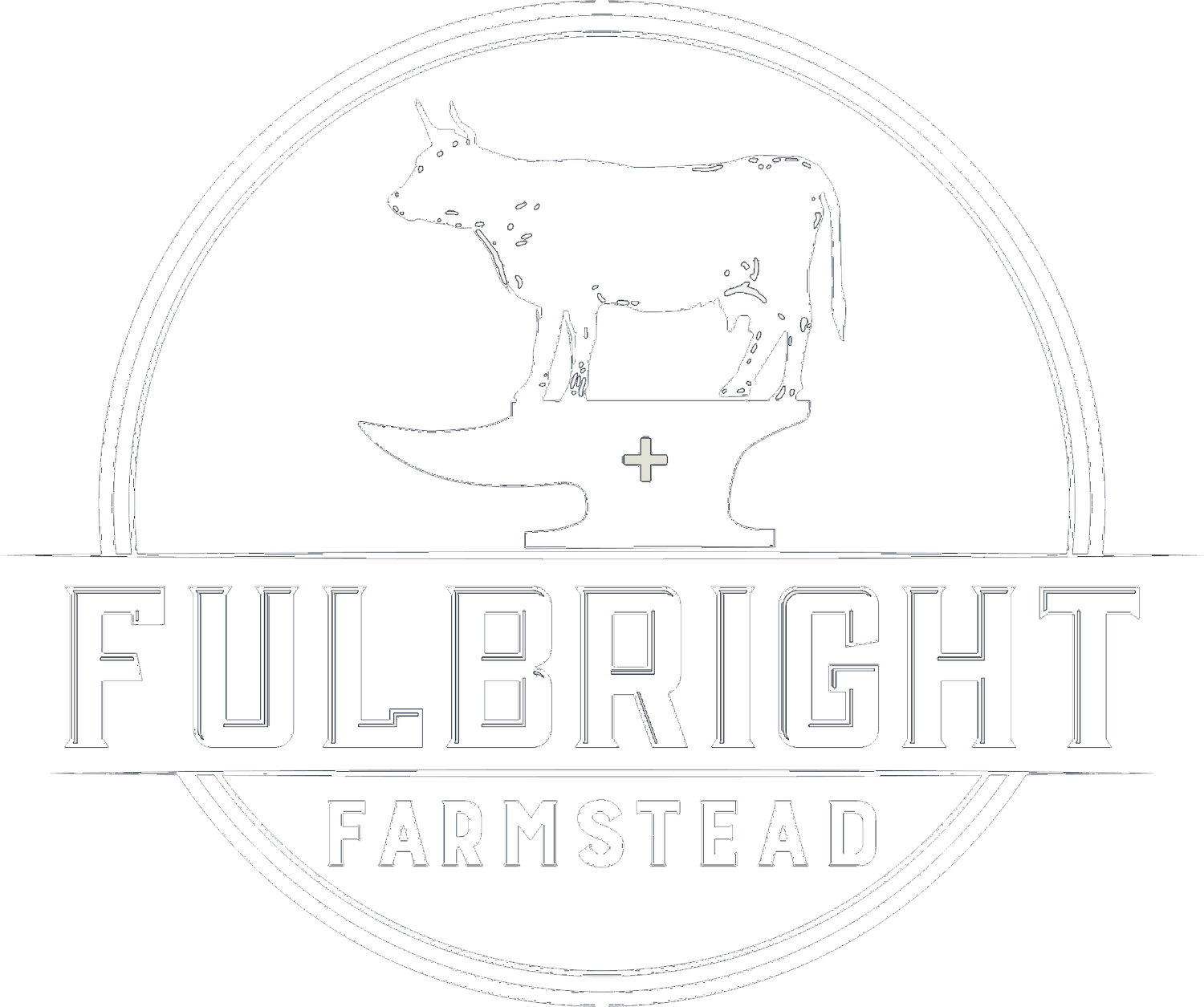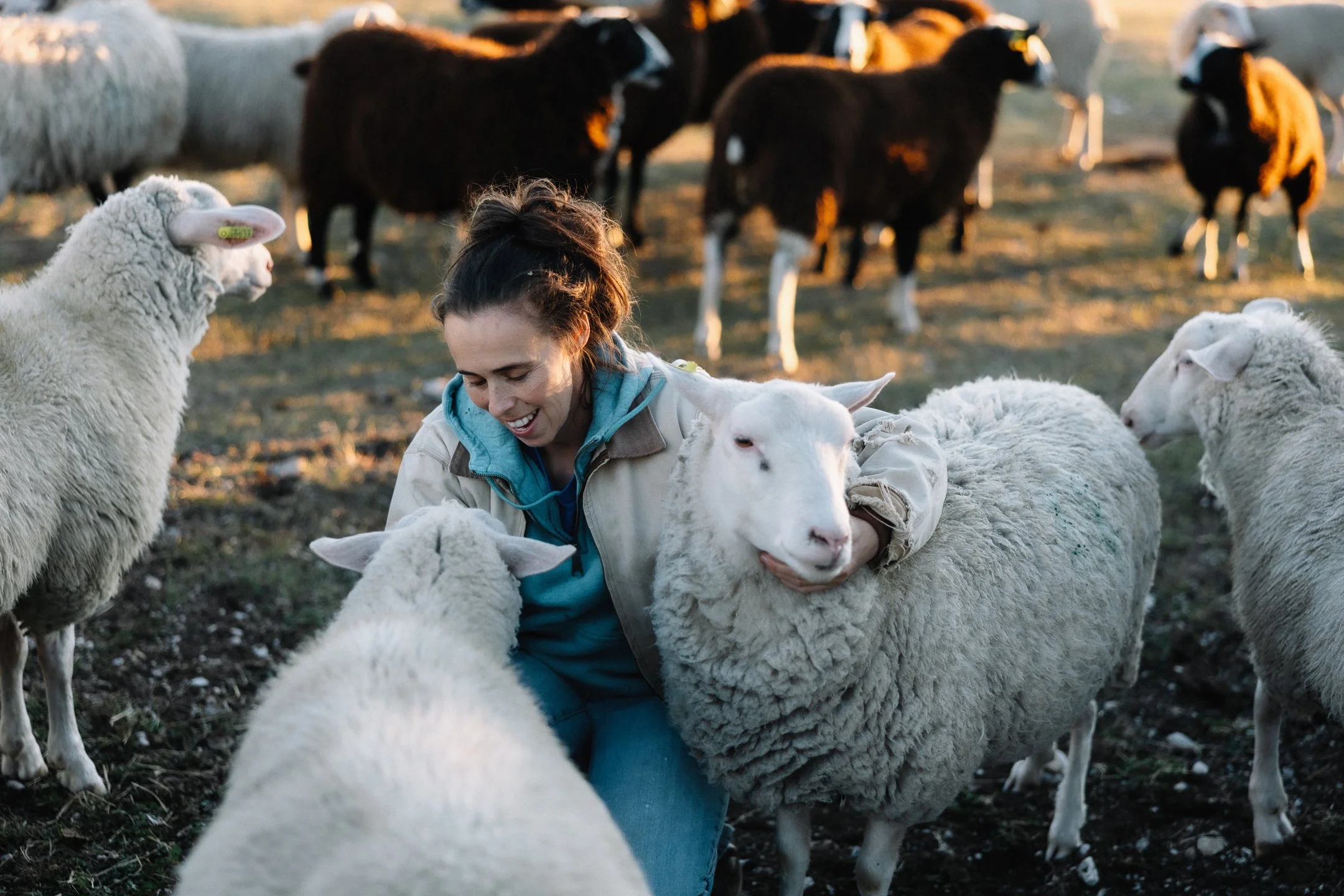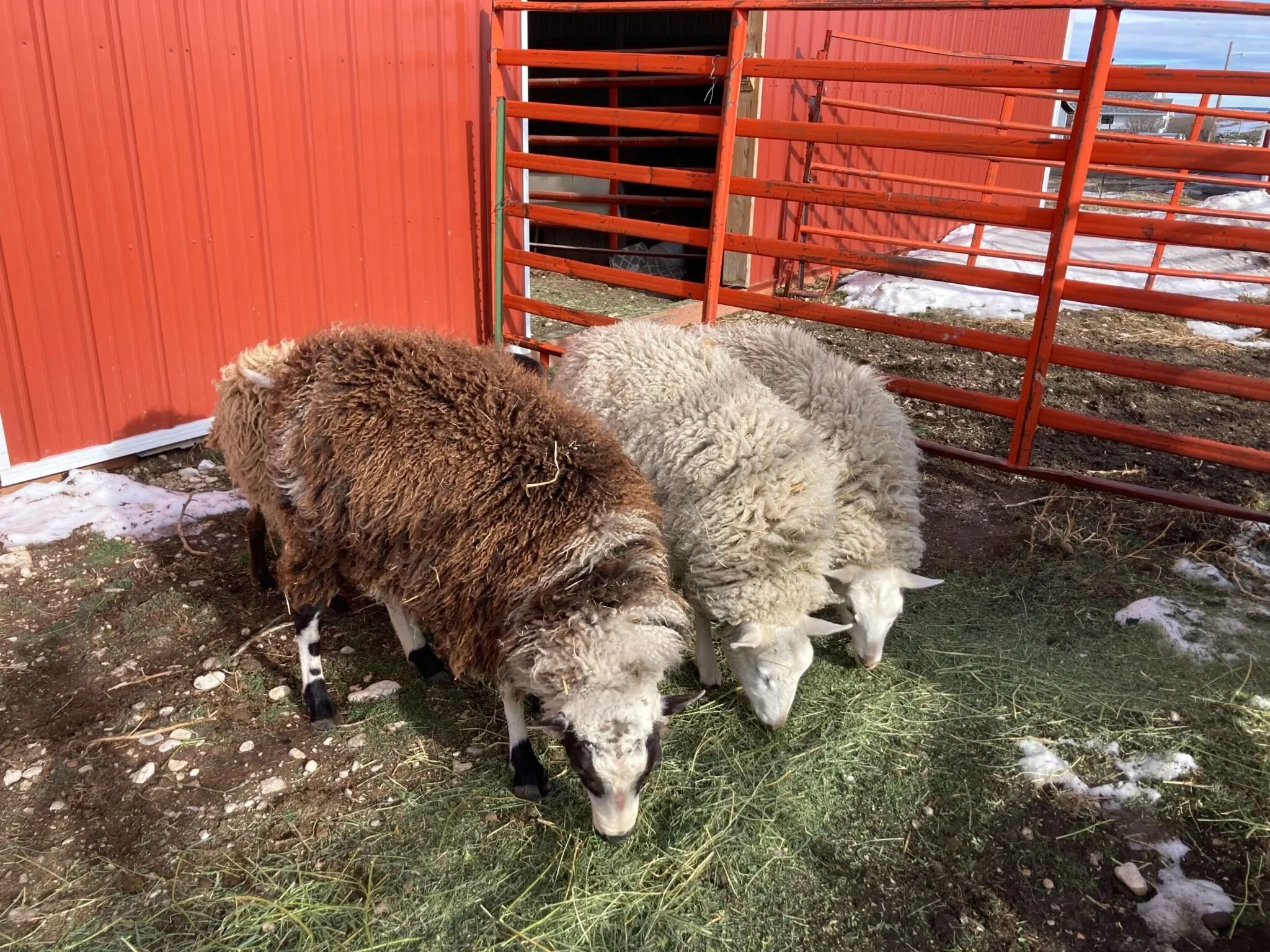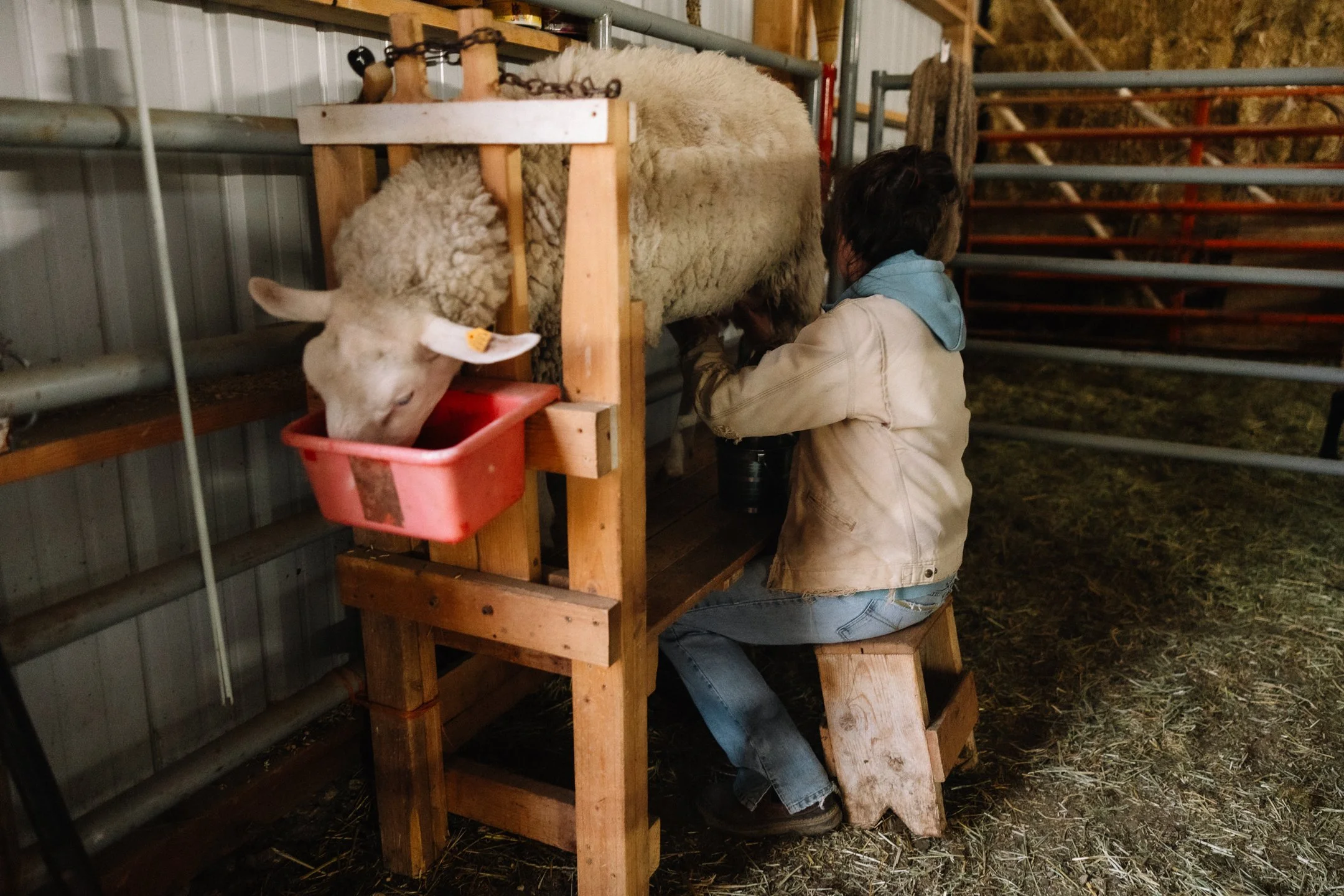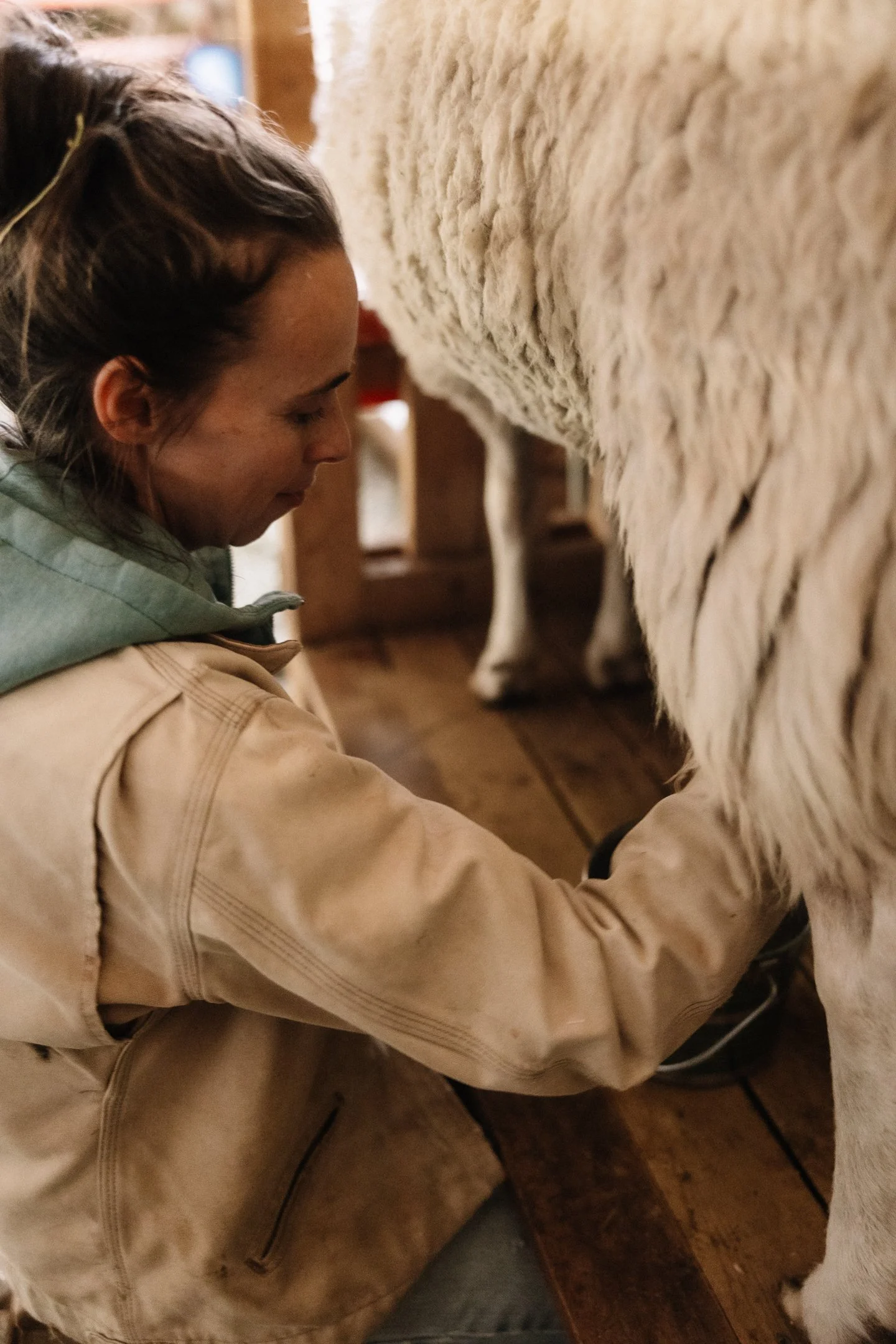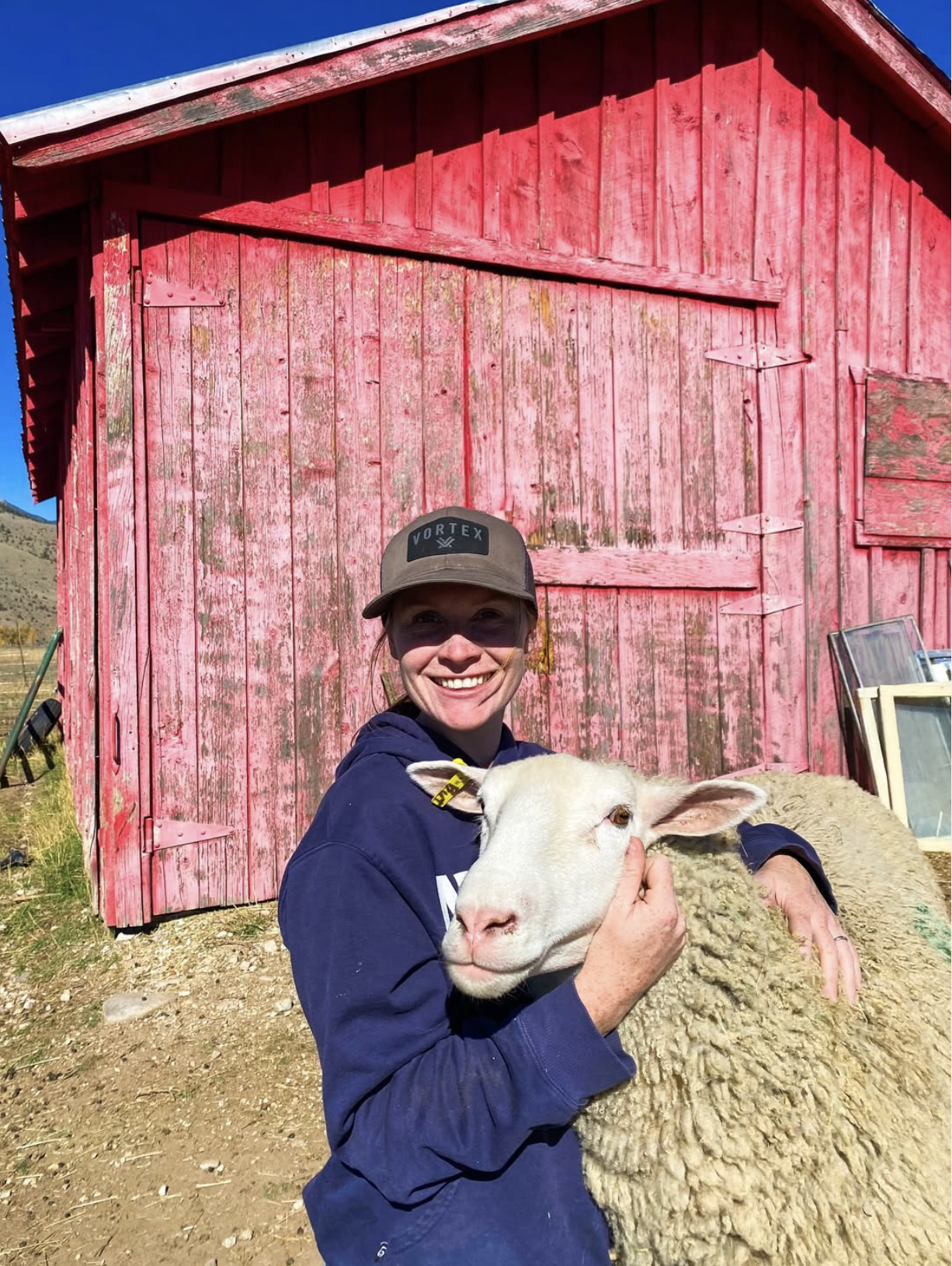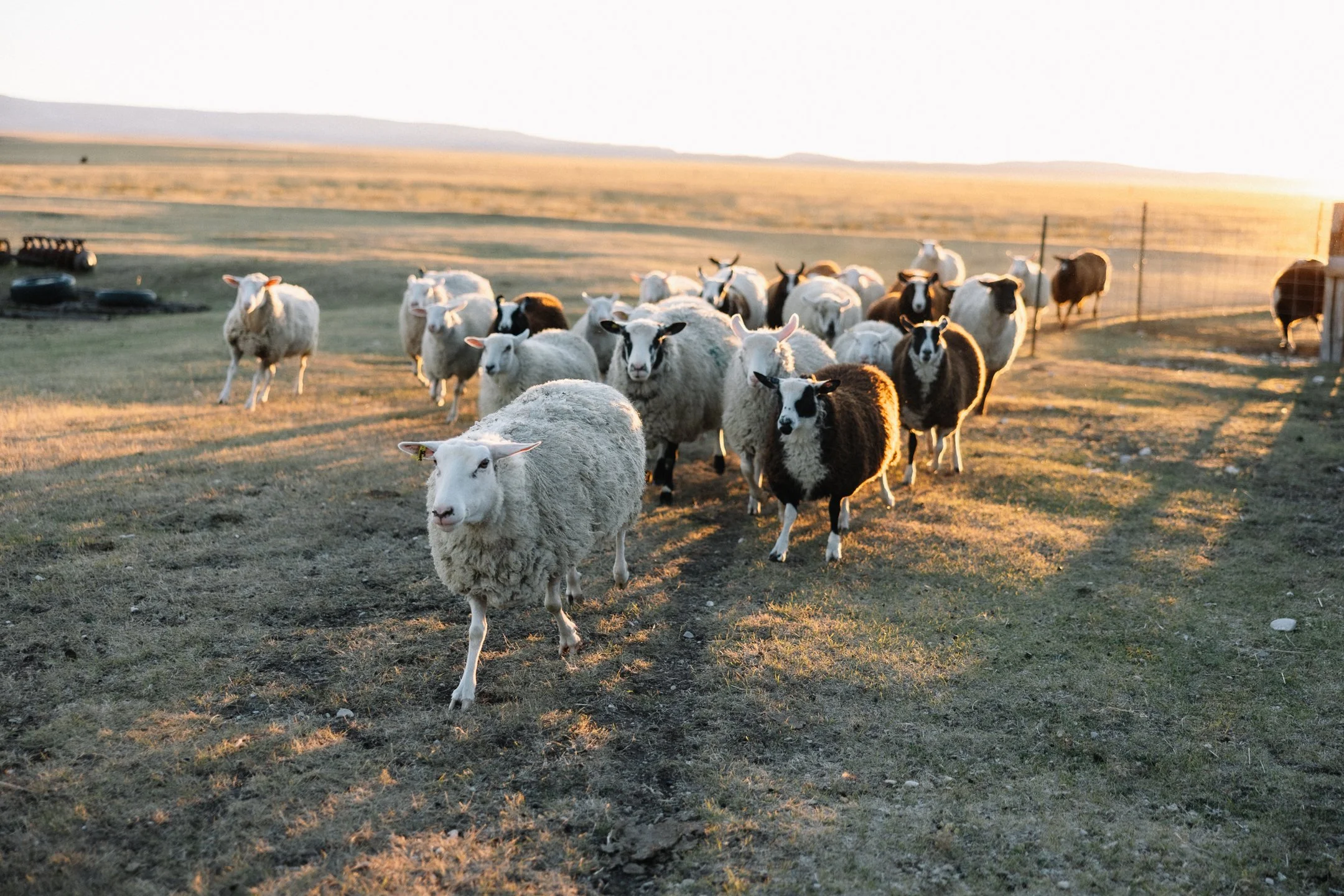The First Question I Ask Every Potential Sheep Buyer (And How Your Answer Changes Everything)
When someone reaches out about buying dairy sheep from Fulbright Farmstead, they're usually excited. They've been dreaming about fresh milk, homemade cheese, maybe even wool for spinning. They ask about breeds, milk production, prices, and availability.
Then I ask them one simple question: "What are your goals?"
Sometimes there's a pause. Sometimes I get a vague answer like "um... milk for my family?" And I smile, because I recognize myself in that uncertainty. I made this exact mistake when I first started with sheep, and I learned the hard way why this question matters so much.
This isn't about being nosy or making things complicated. It's about making sure you get the RIGHT sheep for your actual life—not just any sheep. Because I don't want you to make the same costly mistake I did.
How I Learned This Lesson The Hard Way
After almost ten years with milk cows, something finally clicked for me with cheesemaking. I'd dabbled before, but suddenly I was obsessed—reading everything, trying every technique, completely down the rabbit hole of cultured dairy.
That's when I was reading Ricki Carroll's home cheesemaking book and discovered dairy sheep for the first time. She explained how sheep milk's high butterfat content creates incredible cheese yields—so much more cheese per gallon than cow or goat milk. I was completely sold.
I immediately went searching for dairy sheep. And when I found some available nearby, I jumped on it. I didn't ask many questions. I didn't think deeply about my goals beyond "I want sheep to milk." I didn't even research the breed much. I just bought the first sheep I could find because I was excited and ready to get started.
My first “dairy sheep” - Finns.
The sheep I ended up with were Finns and Finn crosses. They were beautiful animals, and their previous owner had loved them. For her, they were perfect—she valued fiber for spinning, and these sheep excelled at that while also giving her a bit of milk as a bonus. Her goals and her sheep were perfectly matched.
But my goals? Completely different.
I needed lots of milk for serious cheesemaking (priority #1). I wanted large, meaty lambs for filling our freezer (priority #2). And while I thought fiber arts sounded interesting and hoped to learn about it someday, it was honestly last on my list of priorities.
These sweet sheep didn't fit what I actually needed. It didn't take long for me to realize the mismatch, and I ended up rehoming them fairly quickly.
Here's what I finally understood: It wasn't that they were "bad" sheep. They were wonderful sheep—for someone whose goals aligned with their strengths. They just weren't the right sheep for ME.
If I had stopped to really think about what I needed—high milk production for cheesemaking and substantial meat lambs—I would have asked different questions, looked at different breeds, and saved myself (and those sheep) from an unfortunate mismatch.
That experience changed everything about how I approach matching sheep with buyers. Now when someone contacts me, I start with that question because I don't want anyone else to learn this lesson the expensive, heartbreaking way.
Why "What Are Your Goals?" Is The Most Important Question
When most people first reach out about dairy sheep, they say "I want milk for my family." And that's a great starting point! But here's the thing: "milk for my family" could mean so many wildly different things.
Are you talking about enough milk for your morning latte? Or are you planning to make five pounds of cheese every week? Do you want the flexibility to skip milking when life gets crazy, or are you building a daily routine around consistent production? Do you just want milk, or do you also dream of gorgeous wool for your mom to spin?
These aren't minor details—they completely change which sheep will work best for you.
A person who wants a daily latte needs a very different sheep than someone who's planning to make aged cheeses for their entire extended family. Someone who values flexibility needs different traits than someone who's ready to commit to twice-daily milking. And someone who lights up talking about fiber arts should absolutely consider different breeds than someone who couldn't care less about wool.
My job as a breeder isn't just to sell you a sheep. It's to help you figure out what you ACTUALLY need, and then match you with an animal whose strengths align with your real life—not just your Instagram fantasy of homestead living.
This question reveals so much more than just "which breed?" It shows me whether you've thought through the daily reality, if you understand the commitment level, what your experience is, whether your infrastructure matches your dreams, and if you know what "milk for my family" actually means in practical terms.
The Questions Behind The Question
When someone tells me "I want milk," that's just the beginning of the conversation. Here's what I ask next to really understand their goals:
Is Milk The Most Important Thing, Or Is A Dual-Purpose Animal Important To You?
Some people want JUST milk—that's their whole focus and everything else is secondary. Others have this beautiful vision of a homestead where the sheep provide milk AND gorgeous wool AND meat for the freezer. Neither answer is wrong, but they lead to very different breed recommendations.
If fiber matters to you, certain breeds have wool that's absolutely worth spinning while others... well, let's just say you wouldn't want to try. If raising lambs for meat is part of your plan, you'll want a ewe who consistently raises large, fleshy lambs rather than one who produces smaller-framed babies.
Will You Be Milking By Hand Or By Machine?
This might seem like a minor detail, but teat size actually matters more than people think! If you're planning to hand milk, you'll want ewes with longer, easier-to-grip teats. Milking small teats day in and day out becomes taxing very quickly.
If you're using a machine, you have more flexibility with teat size and shape. You can milk those ewes with smaller teats without a problem.
I ask this question early because there's nothing more frustrating than falling in love with a ewe and then discovering she's physically difficult for you to milk based on your chosen method.
What's Your Experience Level With Livestock And Milking?
This is HUGE for determining what age and temperament of sheep will set you up for success.
If you already have experience with livestock or milking, you might do great with a younger ewe or even a lamb that needs some training. You've got the skills to work through challenges, teach good behavior, and troubleshoot problems as they arise.
But if you're brand new to all of this? You need a patient, well-trained ewe who can gently teach YOU the ropes. Think about it: if you're learning how to milk for the first time, learning about sheep behavior for the first time, learning about lambing for the first time, and figuring out pasture management for the first time... do you really want to ALSO be training a green animal at the same time?
Starting with an experienced ewe means you have a confident teacher. She knows what to do, so you can focus on learning your part. Once you've got a lambing and milking season under your belt, THEN you can take on the project of training a younger animal.
Tell Me About Your Setup
Your infrastructure determines what kind of personality and training level you need in a sheep.
Do you have a great setup with alleys, gates, and pens that make it easy to herd sheep where you need them to go? Then you have more flexibility—your sheep don't need to be quite as bombproof or people-oriented.
But if your setup is more basic (and honestly, most homestead setups are!), you need a ewe who's halter-broken or gentle enough to just follow you where you need her to go. Trying to herd an untrained sheep through a basic setup when you're new to this? That's a recipe for frustration on both sides.
What Kind Of Milking Lifestyle Do You Want, And How Much Milk Do You Need?
This might be the most important question of all, because it gets at the heart of how this sheep will fit into your actual daily life.
If you're serious about cheesemaking—making multiple batches every week, preserving cheese for your family year-round, maybe even dreaming of selling cheese someday—you need a heavy producer. That means a ewe who gives abundant milk, and it also means a commitment to consistent daily milking. These high-production girls need to be milked regularly; you can't skip days without consequences.
Picture this lifestyle: Every morning, you're at the milking stand. It's part of your routine, your rhythm, maybe even your meditation. You're producing gallons of milk, making cheese regularly, and building serious skills. It's beautiful, but it's also a significant daily commitment.
On the other hand, maybe your vision looks different. Maybe you want fresh milk for your family to drink—enough for morning lattes, yogurt, a little cheese here and there—but you also need flexibility. You don't want to feel trapped by milking when life gets chaotic, when you want to take a weekend trip, or when you're just overwhelmed and need a break.
For that lifestyle, you want a lower-production ewe and a lamb-share arrangement. You can separate the lamb when you want milk for a few days, milk the ewe, and then just leave the lamb with mama when you don't want to deal with milking. The lamb does the work for you, and you get milk when it fits your life.
These are two completely different approaches to dairy sheep, and neither is better than the other—they're just different goals requiring different animals.
When The Answer Reveals A Mismatch
Sometimes when I'm asking these questions, I hear answers that make me pause. Not because the person is wrong, but because I can see a mismatch forming—one that will lead to frustration, disappointment, or even giving up on sheep entirely.
The "I Want A Lamb" Beginner
One of the most common mismatches I see is when someone with zero livestock experience tells me they want to start with a lamb.
I get it! Lambs are adorable. They're less expensive. And there's something appealing about growing up together with your animal, learning as you go.
But here's what you're actually signing up for when you start with an untrained lamb and no experience:
You'll need to train her to get on the milk stand (which involves a lot of patience and probably some bribing with grain). You'll take her through her first lambing, which means you're both figuring it out together when things go wrong. You'll teach her to stand nicely while being milked instead of dancing around and kicking over the bucket. You'll troubleshoot every health issue, every behavior problem, every challenge completely on your own because you don't have any experience to fall back on.
Can it work? Yes, absolutely. Some people do it and do it well. But I want you to know what you're walking into.
Compare that to starting with an older, well-trained ewe. She already knows her job. She gets on the stand calmly, stands quietly while you milk, and has been through lambing multiple times. Instead of you teaching her, she's teaching YOU. You can focus on learning to milk, learning to read sheep behavior, learning about nutrition and health—all while she patiently shows you how it's done.
My recommendation? Start with an experienced ewe for your first year. Learn from her. Build your confidence. THEN add a lamb the following year once you actually know what you're doing. Your future self will thank you.
The Magic Of The Right Match
Let me tell you a story about why goals matter, but also why connection matters just as much.
A woman contacted me about getting her first dairy sheep. She came out to the farm to meet the sheep and try milking for the first time. I brought in several ewes for her to work with, and she spent time getting to know each one.
At the end of the visit, she told me which ewe she was interested in: a yearling named Butters.
It was about a month before she came back to actually pick up her sheep, and in that time, I continued milking the ewes she'd chosen. Here's the thing about Butters: she was in her first lactation being milked, and she was... well, she was kind of ornery on the milk stand. She would kick. She would dance around. She wasn't terrible, but she definitely wasn't the easiest sheep to milk.
I have another ewe named Sis who was the same age, very similar in many ways, but beautifully well-behaved during milking. Calm, steady, easy.
When the woman came back to pick up her ewes, I gently suggested that maybe she should take Sis instead of Butters. After all, Sis would be so much easier for a first-time milker. Butters might be frustrating.
She thought about it. I could see her considering. But then she said, "No, I still want Butters."
You know what? Butters absolutely loves her. They have a wonderful, undeniable connection. They're doing really well together. That woman saw something in Butters that day—some spark of connection—and she was right to trust it.
Sometimes the "right" sheep isn't the "easiest" sheep on paper. Sometimes there's just a click that happens between a person and an animal. When goals align AND there's a genuine connection, that's when the real magic happens.
Beyond Goals: Why I Always Recommend A Farm Visit
I can ask all the right questions over the phone or through email. We can talk about goals and experience and infrastructure until we've covered every detail. But there's something that happens when someone actually visits the farm and meets the sheep in person that can't be replicated any other way.
Sometimes a person and a sheep just... click.
It's not always logical. It's not always the sheep I would have predicted. But there's this moment where someone's face lights up, where a ewe walks over and nuzzles them, where everything just feels right.
That connection matters. This isn't just a transaction—you're not buying a milk-producing machine. You're beginning a relationship with a living being who will be part of your daily life, your morning routine, your homestead rhythm. When you meet your sheep in person and feel that spark, you know.
I've seen it happen over and over again, and it never gets old.
How To Use This Question For Yourself
Before you reach out to any breeder (including me!), I want you to sit down and really think through these questions. Not just the surface answers, but the deep, honest ones.
Get Specific About Your Goals
What does "milk for my family" actually mean in your daily life?
How much milk do you realistically need per week? Are we talking a quart? A gallon? Multiple gallons?
What do you want to DO with that milk? Fresh drinking milk? Yogurt? Cheese? If cheese, how often will you make it? What kinds?
Is this about self-sufficiency? Learning a new skill? Connecting with your food sources? Teaching your kids responsibility? Creating a slower, more intentional morning routine?
Do you want fiber for spinning or felting? Would you love to raise meat lambs for your freezer? Or is milk your only focus?
Get Honest About Your Experience
Have you ever milked anything before—cow, goat, sheep, anything?
Do you have experience with livestock in general? Have you handled animals, treated health issues, managed breeding?
Are you comfortable with the idea of lambing? Do you know what to watch for, when to intervene, when to call a vet?
How steep of a learning curve can you realistically handle while also managing your job, your kids, your homeschool, your garden, and everything else on your plate?
Get Real About Your Setup
Can you easily herd sheep through gates and alleys to where you need them?
Or do you need a gentle, halter-trained follower who will just come when you call?
Do you have a dedicated milking area set up, or are you still building your infrastructure?
Are you planning to hand milk or use a machine?
Get Clear About Your Lifestyle
Do you WANT a daily milking routine that anchors your morning? Does that sound peaceful and grounding, or does it sound stressful and restrictive?
Do you need flexibility—the ability to skip milking sometimes, take a weekend away, have a break when life gets chaotic?
How will this fit alongside homeschooling, work, kids' activities, and everything else you're juggling?
Be honest about this. There's no "right" answer, but there is YOUR answer—and it matters.
When you can answer these questions clearly and honestly, you're ready to reach out to a breeder and have a real conversation about finding your match.
Frequently Asked Questions
What if I don't know the answers to these questions yet?
That's completely okay! That's actually a great sign—it means you're being thoughtful and realistic rather than rushing in based on a romanticized idea of homestead life.
Start by:
Visiting farms and talking to dairy sheep owners about their real daily experience
Reading and learning (my free guide, The Beginner's Guide to Dairy Sheep: 5 Things Every Homesteader Should Know Before Buying, is a great place to start)
Observing your own daily routine and honestly figuring out where milking would fit
Getting really clear on your "why"—what's driving this dream?
Take your time. The sheep will still be there when you're ready.
Can my goals change after I get sheep?
Absolutely! Your goals and priorities might evolve as you learn and grow. You might start out just wanting milk and discover you love wool! You might think you want maximum production and realize you actually need more flexibility.
But starting with clarity helps you get a sheep who can grow WITH you rather than one who's completely mismatched from day one. You can always add more sheep with different strengths as your goals shift.
What if I want to start with a lamb even though I'm a beginner?
I won't tell you it's impossible—people do it and make it work. But I want you to walk into it with your eyes wide open about what you're signing up for.
You'll be learning how to milk while teaching a lamb to be milked. You'll be learning about sheep health while managing a first-time mother. You'll be troubleshooting everything alone without the experience to know what's normal and what's a problem.
My strong recommendation? Start with an experienced ewe for your first year. Let her teach you. Build your confidence and skills. THEN add a lamb the following year once you actually know what you're doing. Your first ewe will be your mentor—let her be a good one.
How do I know if a breeder is asking me these questions because they care or because they're just being difficult?
Good question! A breeder who cares about the right fit will ask you thoughtful questions and really listen to your answers. They'll help you clarify what you need, suggest ewes that match your goals, and be honest about challenges you might face.
They'll also be willing to tell you if now isn't the right time or if a different animal would serve you better—even if it means losing a sale. That's a breeder who cares about outcomes, not just transactions.
A breeder who's just being difficult will make you feel judged, talk down to you, or make the process unnecessarily complicated without actually helping you get clarity.
Trust your gut. You're looking for someone who will be a mentor and partner on this journey, not just someone who wants to sell you sheep.
Related Posts You'll Love
Finding Your Perfect Match
When someone's goals align with the right sheep, everything flows. The daily rhythm feels natural instead of forced. Challenges feel manageable instead of overwhelming. And those quiet mornings at the milking stand become exactly what you dreamed they'd be.
It's not about finding the "perfect" sheep—because that doesn't exist. It's about finding YOUR sheep. The one whose strengths match your needs. The one whose personality fits your life and your infrastructure. The one who will help you build the homestead life you're dreaming of.
And sometimes, like with Butters and her person, it's about that undeniable connection that just feels right.
I learned the hard way that goals matter. I don't want you to make the same mistake I did—buying the wrong sheep because you didn't take the time to figure out what you actually needed. That mismatch isn't fair to you, and it isn't fair to the sheep.
So before you reach out to any breeder, sit with these questions. Get honest with yourself. Get specific about what you really want, not just what sounds good in theory.
And when you're ready—when you can answer "What are your goals?" with clarity and confidence—that's when you know it's time.
If you're clear on your goals and ready to find your match, visit my available sheep page or contact me to talk about what you're looking for.
If you're still in the dreaming and planning phase, start here: Download my free guide, The Beginner's Guide to Dairy Sheep: 5 Things Every Homesteader Should Know Before Buying. It will help you get clear on whether dairy sheep are the right fit for your homestead.
Either way, I'm here to help you find the right fit—not just any sheep, but YOUR sheep.
The best dairy sheep for you isn't necessarily the highest producer or the fanciest breed. It's the one who fits your actual life, supports your real goals, and maybe—just maybe—steals your heart along the way.
Pin for Later

